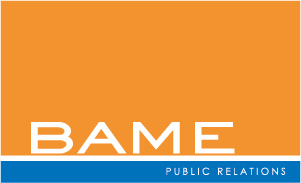Don’t Ignore Your Client’s Ideas to Improve Customer Service
AT&T seems to have placed a very unlikely possibility of legal jeopardy ahead of common sense and its public image – and it ended up with egg on its face and with the immediate need to walk back its initial response.
According to the Los Angeles Times, Southern California resident Alfred Valrie, 35, emailed company CEO Randall Stephenson with two simple ideas to improve service and customer satisfaction: provide unlimited data for DSL users and 1,000 text messages for $10 a month.
But rather than simply acknowledge the idea and act upon it (or consider it but reject it), AT&T referred the email to its legal department, where chief intellectual property counsel Thomas A. Restaino responded to Valrie as follows:
“AT&T has a policy of not entertaining unsolicited offers to adopt, analyze, develop, license or purchase third-party intellectual property . . . from members of the general public. Therefore, we respectfully decline to consider your suggestion.”
In other words, go away right now, customer, and stay away. We don’t want to even look at your email.
What was that all about? A company spokesperson explained that it was no mistake – that the company had a policy of refusing to entertain customer suggestions, lest it adopt any of them and the customer later threatens legal action for alleged theft of the idea. This was a public relations and customer relations error of significant proportions.
As Times reporter David Lazarus wrote: “To call AT&T’s stance tone deaf would be an understatement. This is the sort of ham-fisted corporate overreaction that serves no purpose but to keep customers at arm’s length.”
AT&T not only missed an opportunity to connect with a customer; it also suffered a serious PR blow. Tech and telecom websites were buzzing with bad words about the company.
The very next day, Stephenson changed his tone – as well as the company’s policy. In a letter to the newspaper, he acknowledged that AT&T “blew it” in turning over Valrie’s suggestions to the legal department and in saying it won’t even consider ideas from the general public.
“At AT&T, our top priority is to treat our customers to a premium experience every time they interact with us, and our consistent award-winning service demonstrates we usually get it right,” Stephenson wrote in the letter. “Unfortunately, we don’t meet our high standards 100% of the time,” he added.
This public relations debacle could have been easily avoided. One message is that if you allow lawyers and legal issues to control your response to the public, you will often go wrong. That message applies to law firms as well as it does to companies.




